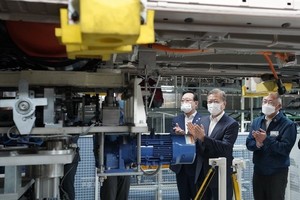
The Ministry of Trade, Industry and Energy announced on the 3rd that it will apply an allotted tariff to lower tariffs on 60 imported items such as future cars, semiconductors, and bios this year.
Assigned tariff is the application of a tax rate (0-4%) lower than the basic tax rate (3-8%) for one year annually on raw and subsidiary materials for industrial use in order to strengthen industrial competitiveness or to stabilize price instability caused by a surge in import prices. Say.
The quota tariff items under the jurisdiction of the Ministry of Industry were increased by 11 new items this year in addition to 49 items last year.
The tariff rate is lowered to 0% for 31 items for fostering new industries such as hydrogen cars, secondary batteries, and new renewable energy.
It included coating machines and drawing machines necessary for the production of hydrogen fuel cells, and nickel cobalt manganese materials for manufacturing cathode materials for secondary batteries.
To reinforce the competitiveness of major industries such as automobiles, steel, textiles, and optics, tariff rates of 0-4% are applied to 21 items.
These include rhodium and palladium, which are catalysts for reducing automobile exhaust gas, ferro titanium for the production of high value-added steels such as aviation, and polyethylene, a raw material for lenses for mobile phones.
Energy such as crude oil, liquefied petroleum gas (LPG) and natural gas (LNG) are subject to the same quota tariffs as last year. However, LNG is applied only for six months (January-March, October-December) during the winter season when demand for heating increases.
The Ministry of Industry expected that there would be an annual tariff support effect of about 400 billion won through the quota tariff this year.
In addition, it was observed that it will contribute to fostering new industries of materials, parts and equipment and recovery of key industries.
